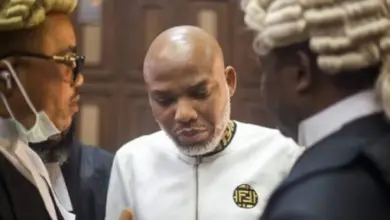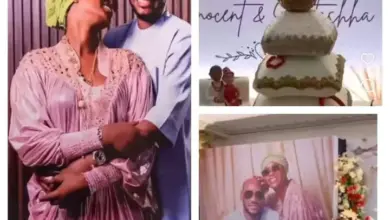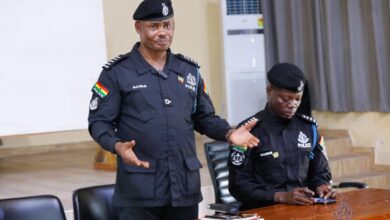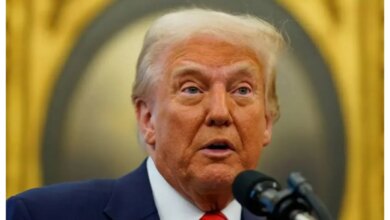The Image Makers: A Call to Reclaim Africa’s Narrative from Within
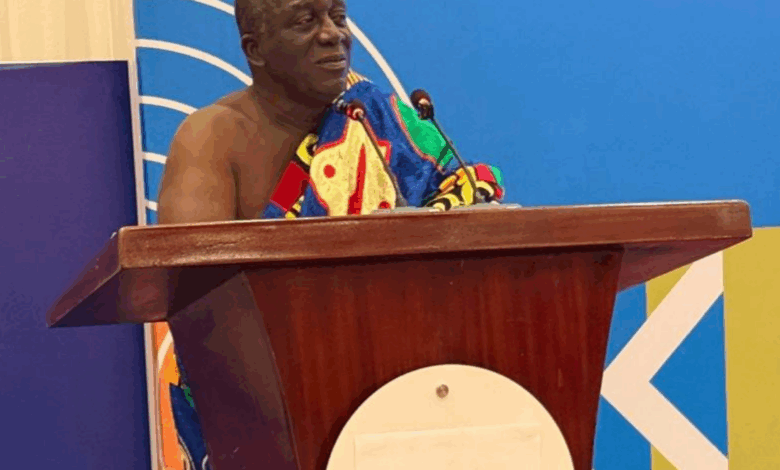
When Nana Kobina Nketsia V rose to address public relations professionals at the on-going 2025 National PR Summit in Takoradi yesterday, he brought with him more than the ceremonial authority of a paramount chief. He carried decades of academic rigour, a scholar’s understanding of African history, and a traditional leader’s intimate knowledge of how words shape communities and nations.
His message was uncompromising: those who control the image control the destiny.
“PR is the most effective tool we have,” Nana Nketsia told the gathering at the Western Serene Atlantic Hotel, “but our greatest tool is our mind-set.” It is a statement that will reverberate throughout the two-day summit, challenging Ghana’s communication professionals to examine not just their techniques, but the very consciousness from which their work emerges.
The Scholar-Chief Who Bridges Worlds
Nana Kobina Nketsia V, Omanhene of the EssikadoTraditional Area and newly elected President of the Western Regional House of Chiefs, occupies a unique space in Ghana’s intellectual and traditional landscape. With a doctorate in African History from the University of Calabar and years spent lecturing at the University of Cape Coast, he understands both indigenous knowledge systems and contemporary governance structures.
His 2013 book, African Culture in Governance and Development: The Ghana Paradigm, argues that sustainable progress cannot be built on borrowed frameworks alone—it must emerge from African cultural systems themselves. This conviction shaped his address to the PR professionals, whom he described as “the image makers of our country.”
“Manipulation is all about control,” Nana Nketsiaemphasised, his words carrying the weight of someone who has watched African narratives being shaped by external forces for too long. “We must control our minds, make decisions according to our own consciousness, and never allow others to control our reality.”
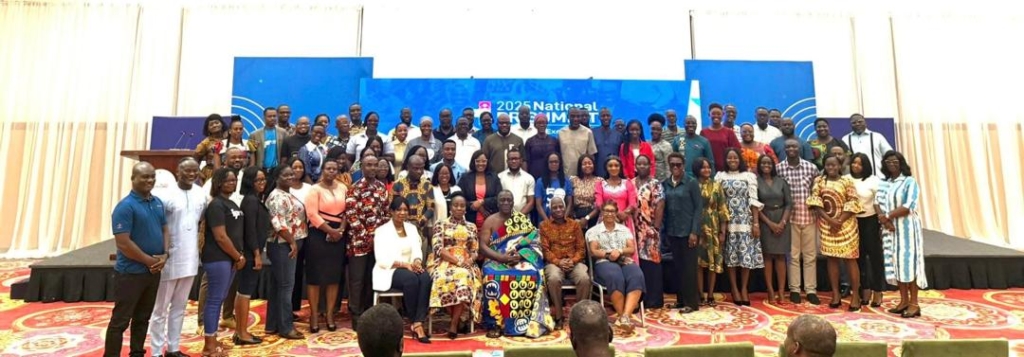
Words as Weapons, Communication as Culture
The summit’s theme—“Reimagining Public Relations in a Contemporary World”—took on deeper meaning through Nana Nketsia’s lens. For him, communication is not merely about crafting messages or managing reputations. It is about shaping consciousness itself, about determining whose values and whose reality guide the national conversation.
“Words, images, and influence matter,” he told the audience. “Every word and gesture shapes perception. Control of information in the national agenda matters because whoever controls content and history shapes society.”
This is not abstract theory for a traditional leader who has consistently advocated against illegal mining (galamsey) and for the revitalisation of Ghana’s rail infrastructure. Nana Nketsia knows that the battle for Ghana’s environmental and economic future is, in part, a battle of narratives—and PR professionals are on the front lines.
His call was clear: Africa must define its own ideology, “neither Western nor Eastern, but authentically African.” In a world where digital platforms are dominated by algorithms trained on Western data, where AI increasingly shapes public discourse, and where traditional media still reaches populations that digital channels cannot, this authenticity becomes both a challenge and opportunity.
Unity Against Division
Perhaps most striking was Nana Nketsia’s emphasis on consciousness and unity. “Avoid division,” he urged. “Understand who profits from it, and use communication to foster unity and humanise people.”
It was advice particularly resonant in Ghana’s current context.
“Study and understand the psychology of your audience,” Nana Nketsia counselled. “Always be aware of your responsibilities and obligations, because effective leadership and communication require alignment with your values and the interests of your community.”
A Profession Reimagining Itself
The summit has brought together professionals grappling with precisely these questions. How do we adapt our capabilities to changing circumstances whilst remaining rooted in our contexts? How do we harness artificial intelligence without losing our authentic voice? How do we communicate climate change in ways that resonate locally whilst contributing to global solutions?
IPR Ghana President Esther A. N. Cobbah noted in her opening remarks that the Institute’s ‘Speak Truth for Peace’campaign was especially relevant during the country’s general election season. She said the capacity to communicate in ways that build rather than fracture communities was not just professional skill but a national necessity.
President Cobbah urged participants to “expand their horizons, to relearn, unlearn, and share with each other.” Overthe next two intensive days, they will do exactly that—presenting professional papers, engaging in the Institute’s 31st Annual General Meeting, inducting newly qualified members, and celebrating excellence through the PR Awards.
Nana Nketsia’s address has provided the intellectual and moral framework for all these activities. His message was simple yet profound: communication is about connecting culture, heritage, and consciousness. It is more than delivering information—it is shaping perception, building unity, and creating impact.
The Weight of Image-Making
As Ghana’s PR professionals prepare to deliberate on the theme : “Reimagining Public Relations in a Contemporary World”, over the next couple of days at Takoradi, Nana Nketsia’s final point will linger: “Whoever controls the image controls the destiny.” And this, hopefully, would reshape their perspective, thinking and professional approaches.
For a nation still emerging from colonial narratives, still defining its place in a globalised world, still determining which stories to tell about itself, this truth carries particular urgency. The image makers—Ghana’s public relations professionals—bear a responsibility that extends far beyond corporate communications or government messaging.
They are, whether they fully recognise it or not, custodians of national consciousness. They shape how Ghanaians see themselves and how the world sees Ghana. In Nana Nketsia’svision, this makes them not just professionals but cultural workers, not just communicators but nation builders.
The question he left hanging in the Atlantic breeze of a November afternoon was this: Will Ghana’s image makers rise to claim that destiny, grounded in African values and consciousness? Or will they continue to allow others to frame the narrative?
For a scholar-chief who has spent his life arguing for the centrality of African cultural systems in governance and development, the answer is not in doubt. The only question is whether communication professionals will embrace the fullness of their calling.
Peter Martey Agbeko is Chair of the International Relations Committee, Institute of Public Relations (IPR) Ghana. He is at the 2025 National PR Summit in Takoradi
DISCLAIMER: The Views, Comments, Opinions, Contributions and Statements made by Readers and Contributors on this platform do not necessarily represent the views or policy of Multimedia Group Limited.
DISCLAIMER: The Views, Comments, Opinions, Contributions and Statements made by Readers and Contributors on this platform do not necessarily represent the views or policy of Multimedia Group Limited.
Source link

